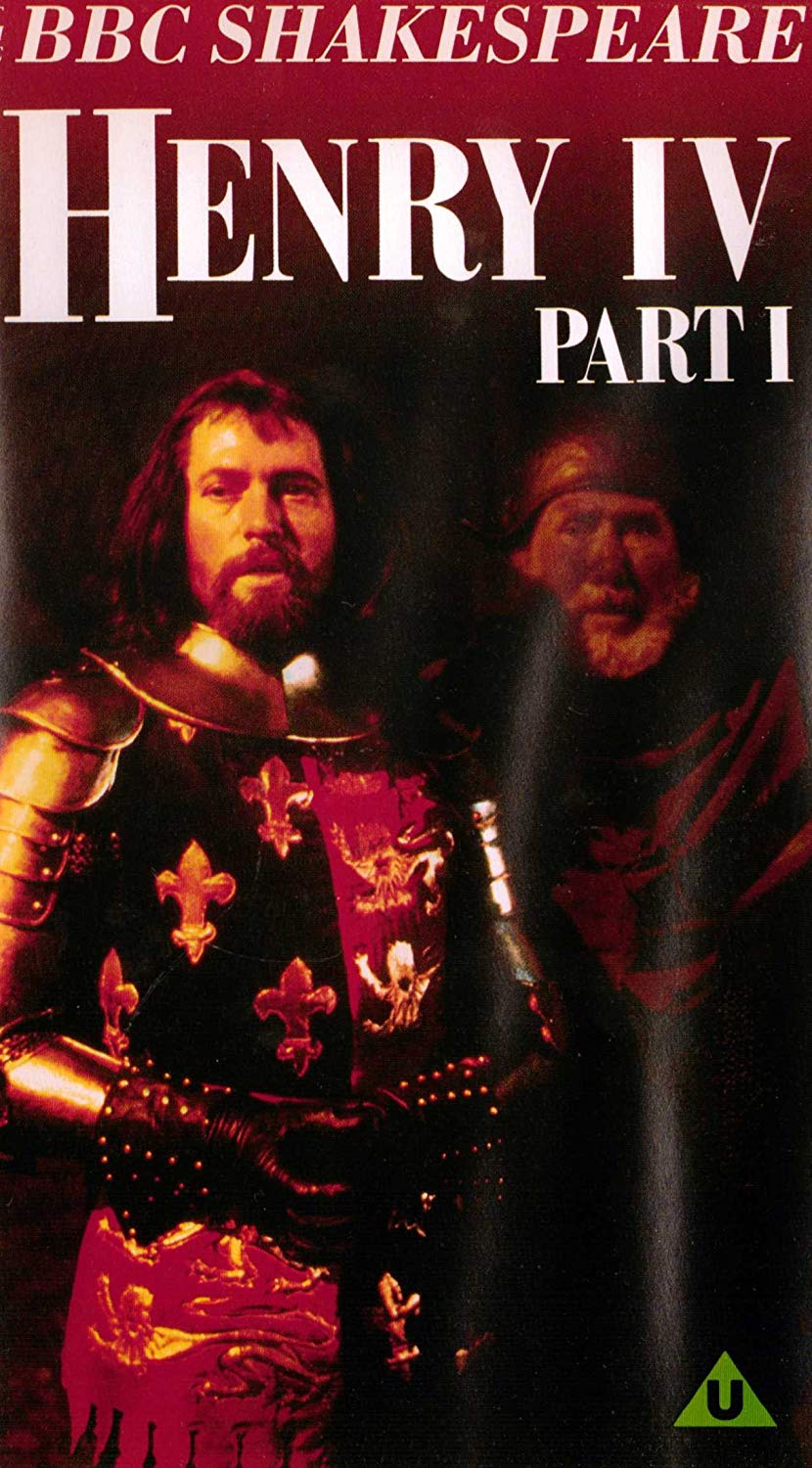
7-), and Henry IV shows a similarly keen awareness of both the potential and the limitations of the small screen. Although primarily a man of the theatre, Caird clearly learned from Jim Goddard's virtuoso translation of the Royal Shakespeare Company's Nicholas Nickleby (co-directed by Caird and Trevor Nunn) into a television classic (Channel Four, tx. This last element is accentuated by the crepuscular lighting: this is an altogether more menacing production than previous television Henry IVs. Rufus Sewell's Hotspur is fired by righteous outrage, stabbing his finger at the family tree to emphasise the royal succession, while Ronald Pickup's rueful King is at the mercy of events - his "uneasy lies the head" soliloquy occurs much earlier, casting a doom-haunted pall over what follows. This production was broadcast on BBC Radio 3 on 18 March 1973. ) PRINCIPAL CAST: David Buck (Hotspur) Peter Jeffrey (Henry IV) Leo McKern (Sir John Falstaff) John Rowe (Prince Hal). There, a manipulative Falstaff had the upper hand over a naïve Prince, but Calder's huge-bellied knight seems permanently soused, spending his rare moments of hungover lucidity feeling sorry for himself, while Firth's Hal is much more cynical and knowing. Pr Henry IV, Part One (1973) Henry IV, Part One (. The interplay between Falstaff ( David Calder) and Hal ( Jonathan Firth) is strikingly different from that in the BBC Television Shakespeare version (tx.

All of which is entirely forgivable given that Shakespeare's original was hardly a model of historical accuracy.

Falstaff's encounter with Doll Tearsheet ( Part II) is followed by Hotspur's leave-taking of Lady Percy ( Part I), the King's upbraiding of Hal ( Part I) is intercut with the Lord Chief Justice's interrogation of Falstaff ( Part II), and so on, and all the battle scenes are telescoped into a single encounter at Shrewsbury near the climax. Key scenes were generally retained, but often shortened to dramatic essentials and repositioned.
#Bbc henry iv part 1 series#
Although I’m enjoying my grand 2017 rewatch of the official BBC Shakespeare series (1978-1985), I’d agree that generally speaking, most of these productions are not to be listed among ground-breaking or redefining versions of the plays. Richard Loncraine) - the medieval-cum-Elizabethan setting at least remains true to the original - it certainly rivals it for gripping immediacy and overall clarity. Verfremdungseffekt at the Beeb The BBC Henry VI Part One. If it's not as radical a reinvention as the same year's big-screen Richard III (d. Huge cuts were made to the original text ( Caird said that he'd removed almost everybody named after an English county), much of the remainder was reshuffled, and additional material was interpolated from Richard II, Henry V, Henry VI Part III and The Merry Wives of Windsor. Made on an unusually large budget of £1 million, John Caird's adaptation of Henry IV was the BBC's biggest Shakespeare project since the close of the BBC Television Shakespeare (1978-85) a decade earlier, and was considerably more adventurous than any of those productions. "Captured live in Stratford-upon-Avon, the production transferred to the Barbican, London, as part of ‘King and Country: Shakespeare's Great Cycle of Kings’, to mark the 400th anniversary of Shakespeare's death.The life and death of King Henry IV, and the coming of age of his son Prince Hal. Henry IV, Part 1 (Royal Shakespeare Company)

Performed by David Gwillim, Robert Brown, David Buck, Clive Swift, Tim Pigott-Smith, Bruce Purchase, Robert Morris, John Cairney, David Neal, and Norman Rutherford: BBC Worldwide, 1979, 2 hours 25 minutes." Henry IV, Part 1 depicts a span of history that begins with Hotspur's battle at Homildon in Northumberland against Douglas late in 1402 and ends with the defeat of the rebels at Shrewsbury in the middle of 1403." It is the second play in Shakespeare's tetralogy dealing with the successive reigns of Richard II, Henry IV (two plays, including Henry IV, Part 2), and Henry V. " Henry IV, Part 1 is a history play by William Shakespeare, believed to have been written no later than 1597.


 0 kommentar(er)
0 kommentar(er)
